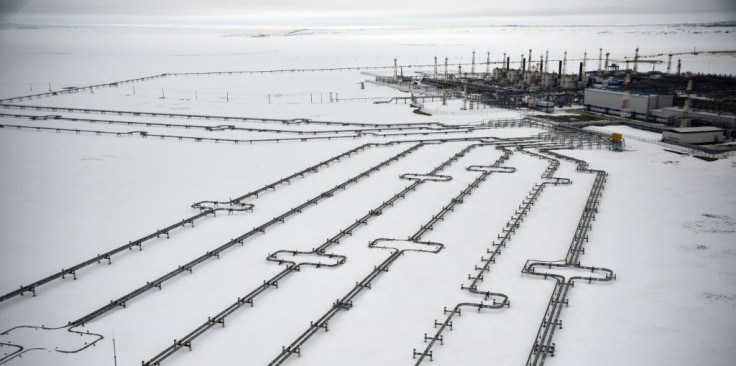German Execs Slam Planned US Sanctions On Russian Pipeline

The German-Russian Chamber of Commerce called for retaliatory sanctions on Thursday after US lawmakers gave initial approval to a bill that would punish contractors working on a Russian pipeline to Germany.
"Europe should respond to sanctions that damage Europe with counter-sanctions," Matthias Schepp, head of the German-Russian Chamber of Commerce, said in a statement.
The 9.5-billion-euro ($10.6 billion) Nord Stream 2 pipeline will run under the Baltic Sea and is set to double shipments of Russian natural gas to Germany.
Half of the project is financed by Russian gas giant Gazprom, with the rest covered by its European partners: Germany's Wintershall and Uniper, Anglo-Dutch Shell, France's Engie and Austria's OMV.
Despite its own diplomatic tensions with Russia, including over the murder of a former Chechen rebel in Berlin earlier this year, Germany has repeatedly defended the project as vital to its energy security.
Schepp said the pipeline would "increase energy security in Europe" and the sanctions would end up affecting European companies more than Russia.
The bill requires the US State Department to report back within 60 days with the names of companies and individuals involved in pipe-laying for Nord Stream 2 and TurkStream, another pipeline from Russia to Turkey.
The sanctions envisioned by the bill include asset freezes and revocation of US visas for the contractors.
The bill is expected to receive final approval from the Senate and US President Donald Trump within days.
One major contractor that could be hit by the sanctions is Swiss-based Allseas, which owns the largest pipeline laying ship in the world, the Pioneering Spirit, and has been hired by Gazprom to build the offshore section.
Despite tensions, Europe is still Russia's primary customer for natural gas.
Nord Stream 2 has been denounced by the United States and countries in eastern and central Europe, particularly Ukraine, which is currently a major transit country for Russian gas to Europe.
They fear the pipeline, which has an annual capacity of 55 billion cubic metres (cbm), will increase Europe's reliance on Russian energy supplies which Moscow could then use to exert political pressure.
Russia had hoped to unveil the 1,230-kilometre pipeline in late 2019 but the launch has been delayed due to difficulties in obtaining the permits from Denmark.
In October, Copenhagen gave Russia a permit to build a section of the pipeline on the Danish continental shelf in the Baltic Sea.
Russian Deputy Prime Minister Dmitry Kozak told reporters last month that he expected the pipeline to become operational in mid-2020.
© Copyright AFP 2024. All rights reserved.





















